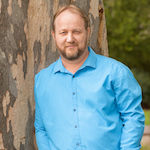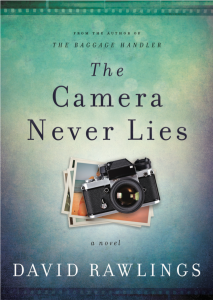by David Rawlings, @DavidJRawlings
I’ve got my third novel coming out in June – my third novel in under eighteen months. Someone asked me the other day how do I find time to write … and work … and have a family … and have a life.
Here’s the thing: I don’t find time. I find I have to make time.
Over the past couple of years I’ve found a writing hack that works for me – and I suggest it here in case you’d like to try it. This is the hack – finding the ‘lost time’ in your schedule that you can repurpose as writing time, and then finding one key task that fits it. (If you’re the type of person who needs a whole block of time to write, you can still do this. It just requires you to tease out one key task that you can get done).
So why do this? One of the issues I find most writers have in common isn’t necessarily writer’s block or plot holes. It’s time; finding enough available time. I still allocate blocks of time to writing where my sole focus is writing, but I’ve found that reclaiming some of the gaps in my calendar takes off some of the pressure of trying to complete all the tasks I need to get through.
The first step – identify gaps in your schedule
What you’re looking for here is to find those times which might otherwise be lost. It’s not taking away from other tasks, nor is it taking away from downtime. There might be gaps in your calendar that require a simple rethink and some preparation. This is what I was able to recover when I looked at my schedule:
Catching the train. I live south of the city, so when I have meetings or lectures in the city I have a 45-minute trip in front of me. I switched from driving to the train, and that gives me back an hour-and-a-half of productive time. That’s enough time to edit 2-3 chapters or a novel or even produce a week’s worth of social media content.
- Taking my daughter to theatre. As a Dad, I do the right thing and drive my daughter to theatre rehearsals. The car ride is a great time to chat or just touch base and keep up with what’s going on in her life. The old way saw me dropping her off, coming home, driving back and picking her up. In looking at my schedule, I realized that if I dropped her off and found a café nearby instead of coming home, I’d not only save on gas, but I’d reclaim an hour back. That time now goes into writing.
- While I’m on the topic of waiting – waiting to pick people up full stop is a potential goldmine. If I’m doing the school run and picking up kids at the end of a school day, I now dictate ideas into my phone while I’m waiting. There’s another 15-20 minutes back.
- Doctor’s appointments. I find that regardless of who the doctor is, there is always a strong possibility they’ll be running late. So I take my laptop, and use that time for something productive. And I stop resenting my doctor while I’m at it!
The second step – find a task you can get done in that time
It’s important to then find a task you can achieve in the allotted time. I find that if I start something big and leave it, it just creates another problem or something else that hangs around, unfinished, at the edges of my thinking.
So I broke down my to-do list into chunks that could be completed in a small timeframe. This is what I came up with, and what I now do in those gaps:
- Add one sense to a scene, but particularly touch and smell. It’s easy to write what a character sees or hears – these other senses really flesh out a scene.
- Search and destroy on overused words. For me, it’s often ‘that’. This one is as simple as searching for a word that’s overdone and replacing it. The good thing about this task is that you don’t necessarily have to finish it in one sitting, and each replacement is an improvement of your manuscript.
- Improve one element of one scene (dialogue, description, character movement, expressions etc). Focus on just one. For example, I would head into a scene and just look at dialogue. Is it startling? Is it on-point for their character? Does it move the story forward? Does it have the edge I’m looking for? Or facial expressions – does everyone raise an eyebrow or smirk? If so, are there other ways of portraying this?
- Give one character an extra quirk. This one is self-explanatory.
- Write one piece of content for your platform. Don’t fall for the myth that you have to write and publish to social media in one movement. Sometimes your best content has some breathing space between creation and publishing. Write your content somewhere else and store it for editing later.
- Come up with five ideas for your next newsletter. You don’t need to write this one, you just need to come up with ideas for it. And it will save you a heap of time about publishing date for your next connection with your readers.
So it might be worth a try! I still allocate blocks of time to writing, but I’ve found that reclaiming some of the ‘lost time’ from my calendar has helped to take some things off my to-do list. Even if you only try one of these things, it might help you move something into the completed column.
Daniel, Kelly, and Milly appear to be the perfect family. But an old camera will expose secrets no one wants developed.
Daniel Whitely is a successful marriage counselor and bestselling author, yet his own marriage is in crisis and his daughter is drifting further away each day. To make matters worse, the deadline for his second book has come and gone, and he still hasn’t written a single word.
When Daniel inherits an old camera from his grandfather, he notices an inscription on the bottom: “No matter what you think you might see, the camera never lies.”
Daniel begins using the camera, but every time he develops his photos, they threaten to reveal secrets that could sabotage both his marriage and his career—exposing him as a fraud and destroying the life he has worked so hard to build.
He’s faced with a choice: keep his secrets and save his career or come clean and possibly save his family. Which will he choose? Which would you choose?

Based in South Australia, David Rawlings is an award-winning author, and a sports-mad father-of-three with his own copywriting business who reads everything within an arm’s reach. He writes that take you deeper into life, posing questions of readers to explore their own faith and how they approach life.
His debut novel – The Baggage Handler – won the 2019 Christy Award for First Novel. His second novel – The Camera Never Lies – focuses on honesty in relationships and is now available.
He is currently signed with Thomas Nelson and represented by The Steve Laube Agency.


